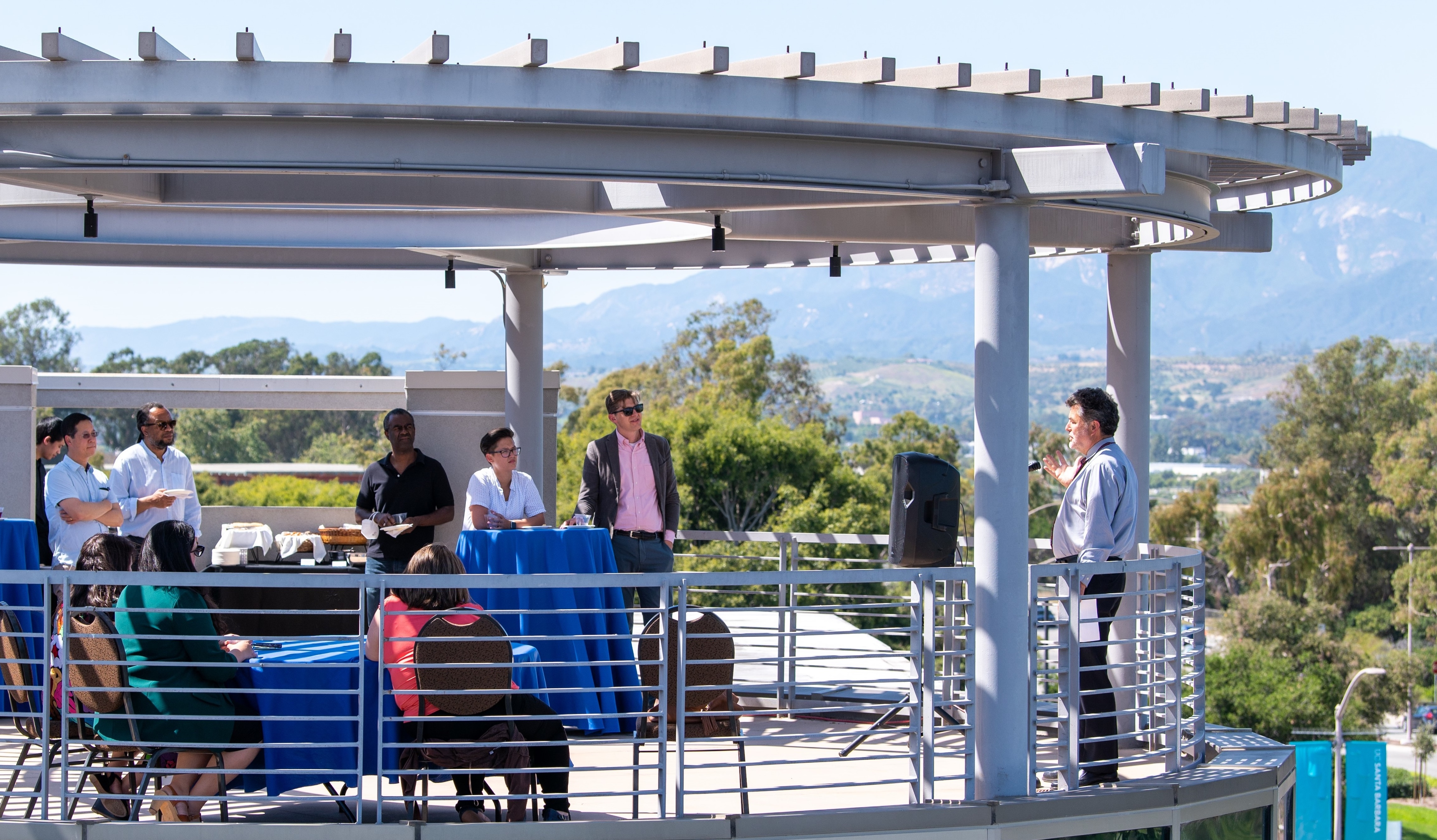
"This program has been fantastic! Easily the most supportive environment I've found at UCSB!"
(Participating Faculty Member)
 New incoming Division of Social Sciences faculty at any rank or current assistant professors and assistant teaching professors in the Division of Social Sciences are strongly encouraged to participate in the program. Faculty can participate in the program every year until earning promotion to tenure or security of employment.
New incoming Division of Social Sciences faculty at any rank or current assistant professors and assistant teaching professors in the Division of Social Sciences are strongly encouraged to participate in the program. Faculty can participate in the program every year until earning promotion to tenure or security of employment.
How to Sign Up for the Program
Each summer, an announcement is sent to all incoming faculty and all assistant professors and assistant teaching professors in the Division inviting them to join the Faculty Mentoring Program. Interested faculty can fill out a brief application form at that time or they can contact the Program Director (Dr. Nadège T. Clitandre) at any time to join.
Mentoring Program Activities
The Division of Social Sciences strongly recommends that all new incoming faculty, assistant professors, and assistant teaching professors in the Division participate in the Faculty Mentoring Program. The following sections describe different activities that faculty have the option of participating in throughout the academic year.
1) Attend an information orientation in September.
This information orientation introduces participating faculty to the Division, UCSB, and the UC System and introduces faculty to campus resources. This information orientation also provides participating faculty with opportunities to meet their Divisional Facilitator and peer group members (and other faculty), socialize with other faculty in the Division, and build community. The information orientation, often held as a breakfast or luncheon, usually occurs the week before Fall Quarter.
"The luncheon I attended was incredibly informative and personally-rewarding. I have been apart of the program for two years, and the existence of this mentoring program has been monumental for my ability to form connections outside of my Department, and to understand the new system I am apart of.”
(Participating Faculty Member)
2) Attend two peer group meetings per quarter.
Participating faculty are assigned to a peer group (approx. 4-5 faculty per group) with a Divisional Facilitator (i.e., a tenured professor in the Division) to coordinate the meeting dates/times/locations and to facilitate discussions around different topics (e.g., sharing research ideas and receiving feedback, reading each other’s work and providing feedback, grant writing, advising grad students, inclusive teaching, tenure and promotion). The group can decide to meet in person or to hold remote meetings.
"Feeling supported by my peers and senior faculty. Improved my self-confidence."
(Participating Faculty Member)
3) Attend faculty development workshops.
Participating faculty are asked to provide professional topics of interest to them, and attempts are made to host workshops on those topics. Past workshops include, for example, The Scholars Strategy Network’s workshops, “SSN & UCSB Op-Ed Writing & Pitching Workshop,” “SSN & UCSB Policy Workshop: Connecting & Building Relationships with Policymakers,” and “SSN & UCSB Media Interviewing and Relationship Building.” Other workshops have included “Creating a Bio-Bib and Other Case Materials,” “Tenure and Promotion,” “Funding Opportunities,” and “Working with Graduate Students.”
"I think that it has been very valuable to meet other junior faculty and I found the workshop experience also very helpful."
(Participating Faculty Member)
4) Write-on-site sessions.
The Mentoring Program organizes two write-on-site sessions per quarter for faculty, and the sessions switch off between in-person and remote formats. Faculty can come together to support each other's writing goals and build community, while also finding a quiet space on campus to focus on writing for a set block of time. Food and beverages are also provided during the in-person write-on-site sessions, and a facilitator is present to help faculty meet their goals.
5) Attend the social events.
An information orientation occurs at the beginning of Fall Quarter, followed by a social event at the beginning of Winter Quarter, a social event at the beginning of Spring Quarter, and a luncheon at the end of Spring Quarter.
All of the in-person social events are meant to help participating faculty and Divisional Facilitators connect and build community, as well as update everyone on their peer group activities.
"Just the fact that we have such a well-organized and thoughtful mentoring program has made me feel like we’re valued and well taken care of by the Division. It was also great getting to know other faculty beyond my department."
(Participating Faculty Member)
6) Communicate with their departmental mentor regularly.
Participating faculty are encouraged to communicate regularly with their departmental mentor who they are assigned to when first joining UCSB.
7) Complete 5-10-minute program evaluation surveys at the end of each quarter.
To continuously improve the program, participating faculty are expected to complete a brief survey at the end of each quarter. The Program Director also corresponds with the Divisional Facilitators once per quarter to support the facilitators and the peer groups, as well as to improve the program.






